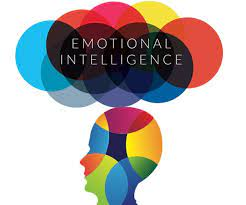Last Updated on 2 years ago by Heyward CPA PLLC

In today's competitive business landscape, success is no longer solely determined by technical skills or knowledge. Emotional intelligence (EI) has emerged as a crucial factor that drives excellence in various aspects of business operations. By understanding and effectively managing emotions, businesses can enhance quality, reduce costs, improve services, boost marketing and sales efforts, make informed IT decisions, optimize inventory management, and excel in project management and negotiations. This article explores how the application of emotional intelligence can positively impact these areas and contribute to overall business success.
Quality Improvement and Cost Reduction
Emotional intelligence plays a pivotal role in quality improvement and cost reduction initiatives within an organization. By fostering a positive work environment, leaders with high EI can create a culture of collaboration, trust, and accountability. This promotes effective teamwork and problem-solving, leading to enhanced product or service quality. Additionally, emotionally intelligent leaders can effectively manage conflicts, reducing wasteful expenditures and improving cost efficiency.
Service Improvement
Customer satisfaction is a cornerstone of business success. Emotionally intelligent employees can empathize with customer needs, adapt their communication styles, and build meaningful relationships. By incorporating EI into customer service training programs, organizations can enhance customer experiences, increase loyalty, and generate positive word-of-mouth referrals.
Marketing and Selling
Emotional intelligence is invaluable in marketing and sales endeavors. Understanding customers' emotions, motivations, and pain points allows marketers to tailor their messages and offerings accordingly. Emotionally intelligent salespeople build rapport, effectively communicate product benefits, and navigate objections with finesse, leading to increased conversion rates and customer loyalty.
Information Technology Decision-Making and Analysis
In the ever-evolving landscape of technology, emotionally intelligent leaders excel at decision-making and analysis. They consider the impact of technological changes on employees, anticipate resistance, and manage expectations effectively. Moreover, by recognizing the emotional aspects of decision-making, such as biases and personal attachments, leaders can make more objective and informed IT decisions, resulting in successful implementations and improved organizational performance.
Inventory Management: Effective inventory management requires a balance between supply and demand. Emotionally intelligent professionals can analyze market trends, anticipate customer needs, and respond promptly to changes. By leveraging EI skills, organizations can minimize stockouts, optimize inventory levels, and streamline supply chain processes, leading to improved operational efficiency and cost savings.
Project Management
Emotional intelligence is instrumental in project management, where success hinges on collaboration, communication, and stakeholder management. Project managers with high EI foster positive team dynamics, motivate team members, and navigate conflicts constructively. They also demonstrate empathy and emotional support, leading to higher team morale, increased productivity, and successful project outcomes.
Negotiations
Negotiations often involve high-stakes decisions and conflicting interests. Emotionally intelligent negotiators remain composed, manage their emotions, and understand the emotional cues of others. By creating a cooperative atmosphere and focusing on win-win outcomes, emotionally intelligent negotiators can build trust, strengthen relationships, and achieve mutually beneficial agreements.
Conclusion
Emotional intelligence is a valuable asset across various dimensions of business operations. By prioritizing EI development and incorporating it into organizational practices, businesses can unlock a multitude of benefits, including improved quality, cost reduction, enhanced services, effective marketing, and selling, informed IT decision-making, streamlined inventory management, successful project outcomes, and fruitful negotiations. Embracing emotional intelligence as a strategic advantage can propel businesses toward sustainable success in today's dynamic and competitive marketplace.
Watch the full video here: Application of Emotional Intelligence in Business.

